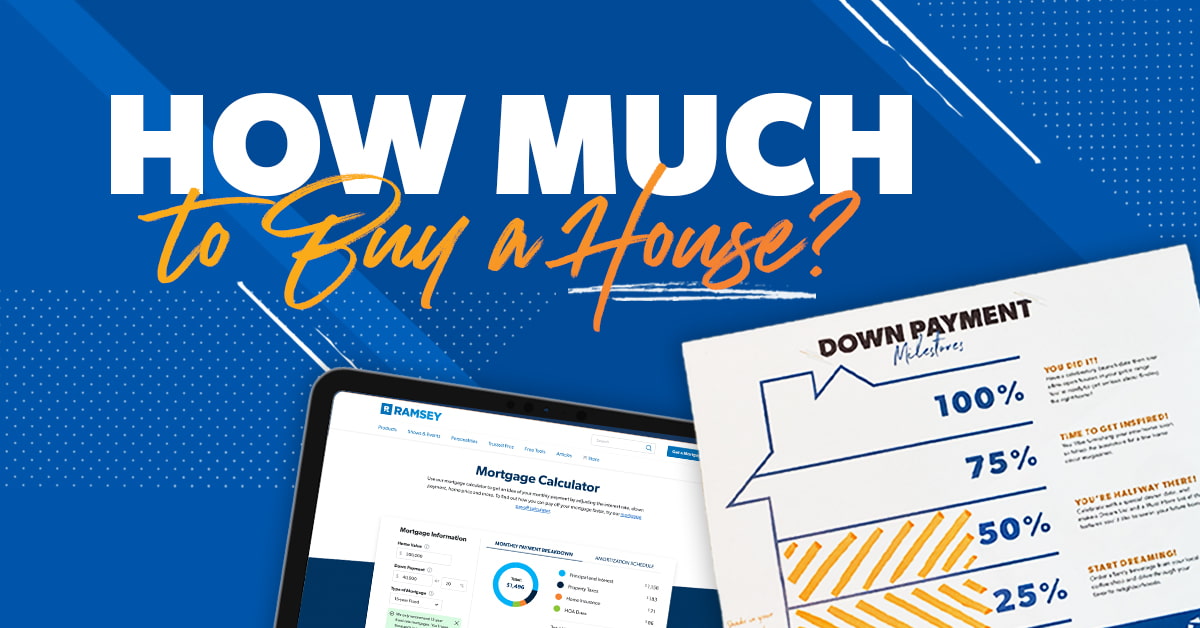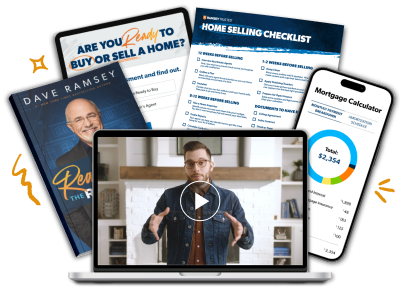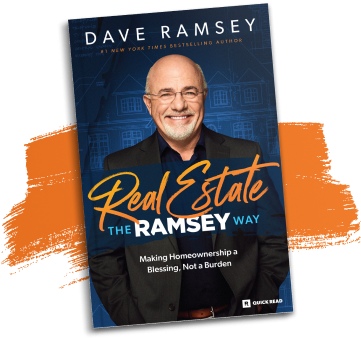How Much Money Do I Need to Buy a House?
4 Min Read | Feb 12, 2025

Key Takeaways
- You should save at least 25% of a home’s sale price before buying.
- Keep your monthly payment below 25% of your take-home pay.
- Buyers typically pay 3–4% of the home’s sale price in closing costs.
So, you’re thinking about buying a house. That’s exciting! Not only is buying a home a great way to build wealth, but there’s something special about owning your house—it feels more like home.
But I’m guessing you’ve got one big question on your mind: How much money do I need to buy a house? Figuring out exactly how much you need to save can be tricky, but don’t worry! I’m going to walk you through the numbers so you can make a good, realistic savings goal that’ll help make your future home a blessing—not a burden.
How Much Money Do You Need to Buy a House?
A good number to shoot for when saving for a house is 25% of the sale price to cover your down payment, closing costs and moving expenses. So if you’re looking to buy a $300,000 house, you should save around $75,000 (in addition to 3–6 months of your typical expenses in an emergency fund).
When it comes to how much money you need to make before buying a house, your monthly payment should be no more than 25% of your take-home pay on a 15-year fixed-rate mortgage. That 25% includes taxes, homeowners insurance and HOA fees.
But here’s the thing about saving for a house: I can’t give an exact answer for how much money you’ll need because the right amount for you will depend on your specific situation. Your savings goal will depend on factors like how big of a home you want to buy, whether you’re a first-time home buyer, and how far you’re planning to move.
So, to make sure you know exactly how much you should save for your individual situation, let’s talk through the three biggest home-buying costs I mentioned earlier: your down payment, closing costs and moving expenses.
How Much Money Do You Need for Closing Costs?
The term closing costs refers to the fees you pay for services that help officially close the deal on a house. For buyers, closing costs usually include:
- Home inspection
- Appraisal
- Origination fees
- Title insurance
- Homeowners insurance
- Taxes
If you’re wondering how much all that stuff costs, home inspections average $340 and appraisals are typically around $360.1,2 Unfortunately, everything else on the list will be a lot pricier.
When you put all your closing costs together, they’ll probably add up to about 3–4% of the home’s sale price.3 That’s how much you should be ready to pay.
Sidenote: You may also have to pay a commission to your real estate agent. In some cases, sellers might offer to cover part or even all of what it costs buyers to work with their agent to sweeten the deal—but every situation is different, so be sure to talk about this with your agent.
Your Guide to Saving for a Down Payment Fast
Break your savings goal into simple steps so you can buy a home you love faster and with confidence.
How Much Money Do You Need for Moving Expenses?
Now, if you’re able to bribe enough friends and family members with pizza to help you move all your stuff for free, then you can skip this part! But if not, you’ll probably be on the hook for some moving costs.
See how much house you can afford with our free mortgage calculator!
Moving expenses aren’t nearly as pricey as the other costs we’ve gone over, but you also won’t be able to cover them with spare change you dug out from under your couch cushions.
The amount you pay in moving costs will depend on how you want to handle your move. If you choose to hire movers, plan to pay around $1,700.4 But if you go the DIY route by renting a moving truck and packing your own stuff, your cost will go down—though you may still wind up spending a couple hundred dollars on the truck, moving boxes and other packing supplies.
Get a Real Estate Game Plan With Dave’s New Book
Learn Dave Ramsey’s roadmap to buy, sell and invest in real estate the right way, so your home can be a blessing, not a burden.
Example of How Much Money to Save for a House
Now that we’ve looked at the numbers, let’s put them all together. If you were planning to buy a $300,000 house and put 20% down so you can avoid paying PMI, here’s how much you’d need to save up:
|
Home Price: $300,000 |
Cost |
Percentage of Home Price |
|
Down Payment |
$60,000 |
20% |
|
Closing Costs |
$12,000 |
4% |
|
Moving Expenses |
$1,700 |
<1% |
|
Total Buying Costs |
$73,700 |
25% |
Just keep those percentages in mind, apply them to your individual situation, and you’ll be in really good shape!
You’ve Got This!
Buying a house is a big step, but it’s totally doable with the right plan. By setting a clear savings goal and understanding the key costs, you can go through the process feeling confident—not overwhelmed.
Remember, the more you prepare now, the smoother your home-buying journey will be. So start saving, stay focused, and before you know it, you’ll be unlocking the door to your new home. I’m cheering you on!
Next Steps
- Create a home budget.
- Visit our Real Estate Home Base to get organized and prepared to buy.
Frequently Asked Questions
-
How much money should I have before buying a home?
-
Before buying a home, you should save around 25% of the sale price to cover your down payment, closing costs and moving expenses.
-
Is $10,000 enough to buy a house?
-
In most situations, trying to buy a house with only $10,000 is a bad idea. You should save enough cash to cover 25% of a home's value.
-
Is $20,000 enough for a down payment on a house?
-
It can be. As a first-time home buyer, you want to put at least 5% down on a home. So, if you’re buying a home for $400,000 or less, $20,000 would be a big enough down payment. But you’ll also need to save up for closing costs and moving expenses—while making sure the monthly payment doesn’t exceed 25% of your take-home pay.





